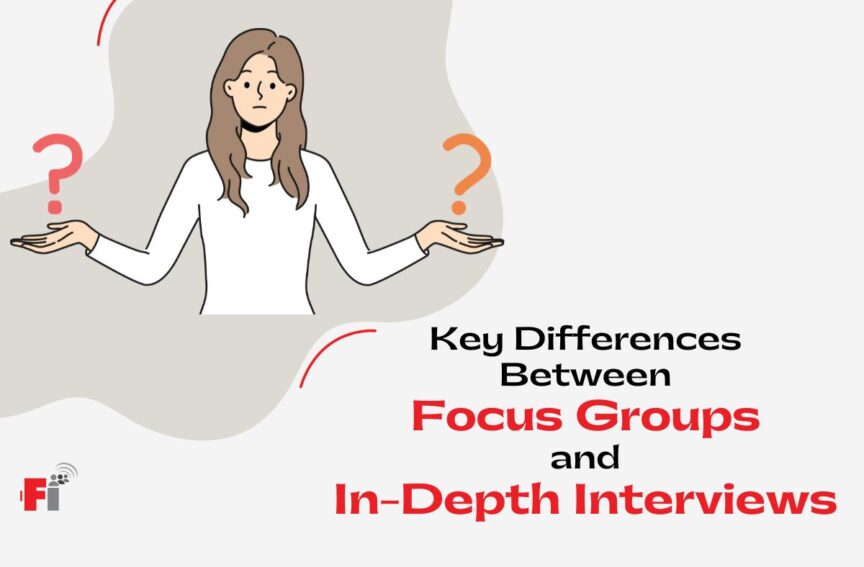Focus groups and in-depth interviews both offer unique advantages when conducting market research. Focus groups gather individuals for collaborative conversation whereas in-depth interviews provide a perspective from individuals with no environmental influence.
Is one method better than the other? We don’t think so. But there are unique advantages to each that may impact the type of insights you are seeking to collect for your research study.
Focus groups and in-depth interviews are tried-and-true ways to get to the “how” and “why” behind decision-making processes of the recruited respondents. While both methodologies are useful tools to researchers and yield copious amounts of data, they aren’t necessarily interchangeable.
If the budget allows for it, market researchers can paint a more holistic picture if both methodologies are used; however, this isn’t always possible so it’s good to know the benefits of each methodology to understand why one might be chosen over the other.
Let’s explore the key differences between the two:
Focus Groups
Focus groups reveal how participants respond to group dynamics and the forces that may influence their thinking and behavior.
Market research is not only about collecting responses, but also observing reactions. In focus groups, a better understanding of real-world responses can be observed. Commonalities and differences between participants will also be revealed.
Conversations in groups naturally morph into a fluid discovery of the subject. Advantages to this include uncovering perspectives or pathways that you may otherwise not have discovered.
In-Depth Interviews
If a subject needs deeper insight, in-depth interviews are often the better choice. In-depth interview participants have the undivided attention of the interviewer, and subject matters can be explored in more detail.
In-depth interviews are especially valuable when you are seeking to understand the process behind decision making. The conversation is centered around a unique experience which can offer detailed insights.
In some cases, researchers may decide to go with an in-depth interview because it’s easier to recruit participants to commit to an interview rather than a focus group. This especially applies if the demographic being targeted is rural or for parents with young children. Scheduling for in-depth interviews offers participants more flexibility and rarely requires any travel.
Market research firms will recommend which qualitative methodology is most appropriate, depending on the scope of the project and budget.
Looking to recruit for your next qualitative market research study? Let’s talk. Request a proposal or email us directly at bids@focusinsite.com


